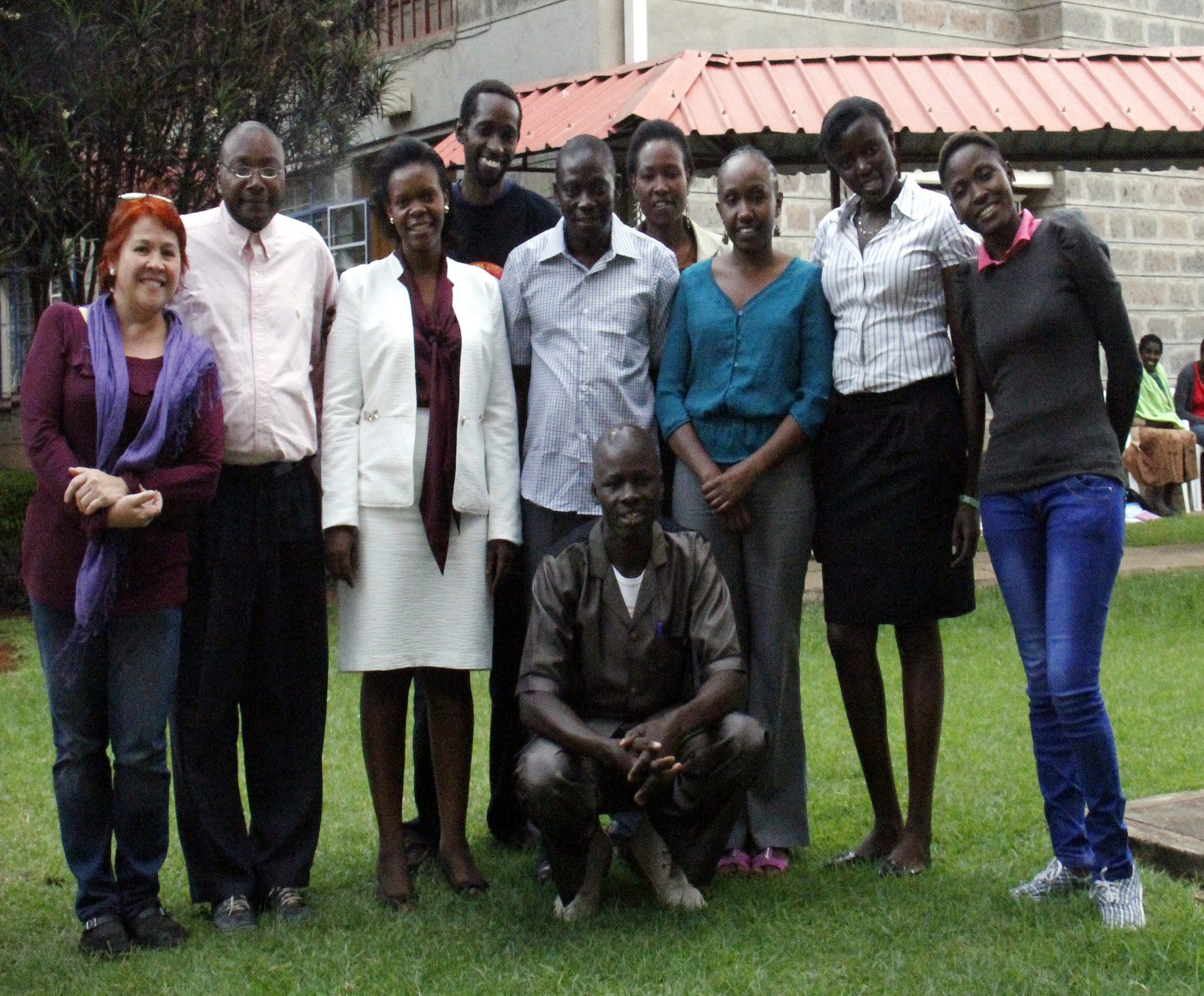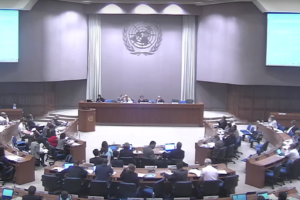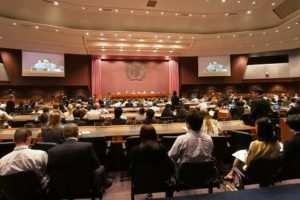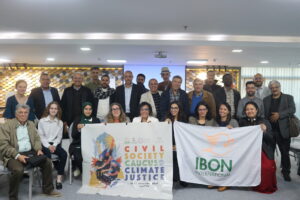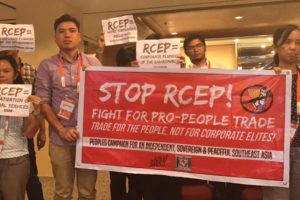Climate Justice Core Group Formation Workshop Report
Background
[[{“type”:”media”,”view_mode”:”media_large”,”fid”:”904″,”attributes”:{“alt”:””,”class”:”media-image”,”height”:”270″,”style”:”width: 350px; height: 197px; margin: 5px; float: right;”,”typeof”:”foaf:Image”,”width”:”480″}}]]
The Climate Justice Core Group is a team of social justice activist on Climate Justice (CJ) from 5 sites in Kenya namely: Migori, Mfangano Island, Cherangani, Malindi and Mathare in Nairobi. The movements represented by this core team include: Ragana Faith Women Group, Mfangano Island Paralegal Network, Sengwer Supreme Council of Elders, Malindi Rights Forum (MRF) and Bunge La Wamama Mashinani (BLW). The team acts as representatives of their various communities including dialogues on climate change at the local level in relation to the community struggles which include marine conservation, an urban informal setting, fisher folk, indigenous communities land struggles in the wake of climate change and female small scale farmers.
The roles of the Climate Justice Core group entail: Coordinating community learning processes and dialogues on Climate Justice (CJ); ensuring processes are developed on the Climate Justice (CJ) project, being sources of information in contextualizing community perspectives on Climate Justice; ensuring desired outputs and outcomes on Climate Justice are realized within their communities; organizing reflective sessions within their communities on climate related issues and strengthening consultations with diverse stakeholders on Climate Justice.
Making connections on Climate Change within our Communities
During the Core group formation meeting, members identified and shared connections amongst themselves, their struggles and the planet as follows:
|
Malindi |
Access to land, environmental pollution by saltcompanies, forced evictions |
|
Mfangano Island |
The depletion of fish stocks, migration of fish interferes with sources of livelihoods. Other struggles include poverty, idleness and water borne diseases brought about by consumption of untreated water from the Lake Victoria. |
|
Migori |
Land rights access for women including, reduced food production due to unpredictable rainfall, lower crop yields, disrupted livelihoods especially due migration of fish |
|
Mathare |
Environmental pollution by industries, congestion, social and political exclusion of communities |
|
Cherangani (Embobut Forest) |
Land rights for indigenous communities, eviction from ancestral land due to environmental conservationfalse-hoods |
Connecting Climatic Struggles
The core group members further shared how their struggles were interconnect. The connections drawn were as follows:
Fisherfolk – Indigenous Communities (have a forest in Mfangano Island which is tourist attraction, evictions from Embobut Forest and the loss of livelihood is also felt by the fisherfolk when fish migrate to other areas due to polluting of the lake
Fisherfolk – urban communities – are impacted similarly through chemical wastes in sources of water
Women farmers – Fisherfolk: Are affected by reducing levels of water in rivers
Fisherfolk – Marine communities: Affected by toxic chemical wastes into rivers and the by companies leading to the death and destruction of breeding grounds for fish. Migration of fish to other areas leading to loss of incomes
Indigenous community – women farmers: Loss of forest is a loss of livelihood leading to lowered levels of rainfall. Indigenous communities report having lower crop yields and have to use fertilizers to boost their harvests
Marine communities – urban informal settlements: Toxic wastes from industries being dumped into rivers similar to dumping of toxic wastes from salt companies into rivers. Both communities suffer lack of steady supply of clean water for domestic use, high household expenditures on water for domestic use
Part 2: The climate crisis – Why should we care?
The rationale for being concerned about the climate crisis was deliberated as: To respond to the various changes that have occurred within communities which are directly related to climate change e.g. depleting food resources, changing soil fertility, food insecurity, interference with sources of livelihoods egg migration of fish due to pollutants from industries around Lake Victoria, lower crop yields, forced eviction under the guise of environmental conservation amongst Sengwer indigenous community, increased households expenditure on basic necessities e.g. water, vulnerability to disasters e.g. floods in Mathare, emission of gaseous wastes e.g. Kariobangi Light Industries in Mathare.
Other reasons put forth for caring about the climate crisis included poor sewerage system and the subsequent vulnerability to diseases, social exclusion of the poor and the deliberate deprivation of access to basic services among populations in urban informal settlements, illegal land allocation, water salination and loss of marine life amongst communities in Malindi.
Part 3: Examining Global Climate Action
This was an open discussion assessing the place of grassroots frontline communities impacted by climate change on the climate justice negotiations. The session further interrogated interrelationship between grassroots communities and the global north on issues of climate.
The emerging issues entailed, struggle over land ownership by women, emergence of social ills such as sexual exploitation of women by fishermen before women can access fish (fish for sex) due to migration of fish in Lake Victoria, Multinational Companies collaborating with the political class to carry out illegal logging in Embobut Forest at the expense of the local communities, the responsibility of development nations, disposal of wastes by Multinational companies e.g. flower farms, backed by governments for financial gains.
Part 4: Why Climate Justice as an organizing approach
The deliberation looked at reasons for organizing on the issue of climate justice, including forming allies to support advocacy on negative impacts of climate change, mobilization for collective action and conscientization sessions through dialogues at the community level to enable a radical shift from climate adaptation to change of systems and structures responsible for the current crisis.The discussion further assessed the connections between local communities and the global environment, giving rise to the following views:
- Chemicals manufactured by industries some of whom are Multinationals (MNCs) find their way into lakes destroying plants and animals, majority of these companies do not originate from the global south because they have established policies and citizen protection systems. These companies come to the global south and exploit natural resources which eventually affect local communities
- If communities don’t care about the environment, they will become extinct by the next generation in addition; communities are all connected in the climate change agenda.
- The predatory and exploitative nature of Multinationals has been responsible for the crisis in communities today
Climate Crisis – Radical Analysis
|
Climatic issue |
How it impacts communities |
Analysis lens |
|
Energy |
|
|
|
Food |
|
|
|
Water |
|
|
|
Climate disasters |
|
|
|
Climate justice falsehoods |
|
|
Key observations made
- There is innate resiliency amongst the core group members towards the climate crisis. What is needed is more spaces for conscientization amongst the group to enable better articulation of Climate change and how it has impacted on the target communities at all levels
- There is a fallacy amongst the core group members that political class and legislations will be responsible for the realization of the change they seek with regard to climate change issues
- The core group member alongside their represented communities address the symptoms of the climate crisis, there is need for a shift in strategies and type of information as well as the sources of this information,that grassroots communities are accessing with regard to climate change.This shift is expected to bring to an end the feelings of powerlessness and resignation victims’ syndrome among grassroots organizers on climate justice
- Social mobilization on the climate justice agenda is called for, including formation of more and stronger allies, this need not only be in the communities where the core group members come from but across communities, only then will be innate power of grassroots communities to demand change be realized.
Conclusions
- The lack of laws to address the plight of climate refugees is deliberate to protect governments from being responsible in addressing the impacts of climate change on communities
- It is only when frontline communities come together, will they be able to address the climate challenge. This is because the developed nations work collectively
- Countries in the global south have the fewest industries that pollute the environment, their manufacturing sector is not as developed and in many cases are exporters of raw materials, with the final products being manufactured in the developed world. Developing nations should thus not be made to bear the burden of the current climate crisis
- There is need for a shift amongs communities from blaming themselves and fellow community members e.g. loggers for the climate crisis (blaming the victim syndrome) and allocate the blame on responsible nations and systems including the Multinational Corporations (MNCs)
- There is a need for a radical shift in initiatives by communities to address the impacts of climate change, as the main culprit is the systems that allow and perpetuate climate injustice. There is need for formation of collectives to demand climate justice amongs grassroots communities
- It is very likely that the power of climate change rests with the common man, for system change we have the power of system change through the vote i.e. people’s power
- People who bear the responsibility of climate change are not the people responsible for the climate change
- Climate justice is a collective of thousands of organizations i.e. the power of collective thinking
- The crisis we currently have is as a result of historical injustices i.e. it’s a very unequal structure, relationships that are unequal, one that discriminates on the poor and priorities on profit and prioritizes the elite, furthermore, some systems exist within communities which support and fuel these oppressions.
